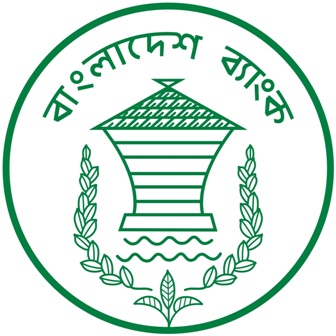Enamul Hafiz Latifee compiles,
Scheduled banks’ lending capacity has increased by above Taka 46,000 crore, thanks to a number of monetary measures undertaken by the Bangladesh Bank to boost liquidity in the money market. The Bangladesh Bank on 09 April 2020 slashed banks’ CRR (cash reserve ratio) by 150 basis points to 4%.
Earlier, the Central Bank on 24 March cut CRR from 5.50% to 5% to ease liquidity flow in the economy. The cut in cash reserve would inject an additional amount of about Taka 19,200 crore into the economy, according to an estimate of Bangladesh Bank.
The CRR determines the portion of customers’ deposits that commercial banks must keep as a reserve with the central bank. To boost investment in the economy hard hit by the steady and surging Coronavirus cases, Bangladesh Bank also raised the banks’ advance-deposit ratio (ADR) by 2%.
The Bangladesh Bank on 12 April 2020 increased the ADR for conventional banks to 87% from 85% and IDR (investment-deposit ratio) for Islamic banks to 92% from 90%. As a result, Taka 27,000 crore additional lending capacities rose in commercial banks, according to an estimate of the department of off-site supervision of Bangladesh Bank.
Besides the two major initiatives, Bangladesh Bank also slashed the policy or repurchase agreement rate (known as the repo rate) by 75 basis points to 5.25% to make funds cheaper for banks. Through the initiative, banks can get more access to Central Bank funds if needed at a lower rate of return. The repayment duration of repo is between 1 day and 28 days as per the central bank’s rules.
Bangladesh Bank started to purchase T-bills and bonds from scheduled banks to inject liquid fund into the market, was another initiative to boost liquidity in the economy during pandemic Coronavirus. Experts said that the Central Bank was doing its parts but the scheduled banks would have to be more pro-active during this crisis period.
Mr. Salehuddin Ahmed, Former Governor of the Central Bank said, the Central Bank took several initiatives to increase liquidity in the banking sector. Now banks would have to come forward, although most of them were facing several problems including a high amount of defaulted loans, he added.
Formulation of the rules and regulation was not the only job of the Central Bank, it should increase their monitoring activities over-scheduled banks to implement the bailout package, he suggested.
Policy Research Institute Executive Director Ahsan H Mansur said the measures were rather inadequate compared to the enormity of the destruction caused by the novel Coronavirus. The Central Bank should have cut the policy rate by at least 200 basis points and brought down the Statutory Liquidity Ratio (SLR) too, he added.
However, bankers welcomed the Central Bank’s initiatives, saying the measure would help implement the bailout package rolled out to shore up the battered businesses. Association of Bankers, Bangladesh (ABB) Chairman Ali Reza Iftekhar said the Bangladesh Bank’s step was a very good initiative.
The policy measures would help banks in mobilizing enough credit flow during the virus-related critical period, he added. “The move will enhance banks’ lending capacity at cheaper interest rates to invigorate the struggling economy caused by the coronavirus outbreak,” said Syed Mahbubur Rahman, Managing Director, and CEO of Mutual Trust Bank.
Prime Minister Sheikh Hasina on 05 April 2020 announced incentive package of Taka 72,750 crore to overcome the economic impact caused by the outbreak of the COVID-19. Most of the incentive packages will be implemented through the banking sector.
